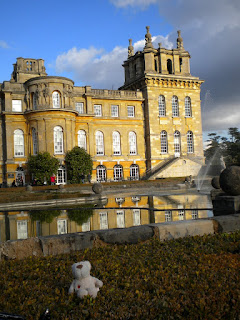Everyone has their rights to their thinking and beliefs. Yet, people never liked to be disagreed upon. Support is something we always wanted. That makes us friends. Science always wanted consensuses. Yet, that do not means they are based on any evidences, it just comes from experiences. Nevertheless, I really do not believe much in evidence-based practice, people make up results and hence you often find Cochrane Systematic Review Database saying, "there is not enough evidence to prove that... ...". Evidences are for the police and lawyers and not so much for clinicians and doctors. We need experiences written down by our seniors, consultants and experts. Clinical research is critical but there is often too much variable among patients for a good comparison. By the way, people will continue with more and more researches (which I myself will be doing it). Well, this gives us the power! The POWER to say that this is right! The power to produce evidences that I am RIGHT in court. The POWER to justify that I am INDEED right. Experts are experts. But evidences rule above all.
Once, the environment shaped us and now, we shapes the environment. The difference is that the environment did good to us in any aspects of life but we as human, are harming the environment. This shows that humans are selfish and self-centred. We always think we are right (at least at the very first moment)and so people come up with evidences to justify our doings. The world has gone insane.
A picture of bear bear @ Blenheim Palace ^^ on 21th of Feb I really really nice place indeed.

PS. Dementia has the worst impact on your family and carer.

1 comment:
eh i don't really agree with you regarding evidence-based medicine.
the danger about relying on experience is that experience alone is, in many instances, not reliable. meaning - it doesn't mean that whatever that has been working for the past 20 years for doctor A will work for you, doctor B, for the next 20 years. relying on experience alone makes people lazy, and in some instances, dangerously doubtful on evidence going against their experience. we see a lot of that in the early days of modern medicine.
EBM is actually not an entirely different paradigm from relying on experience - but it goes a step further. the essence of clinical research - and ultimately systematic review - is to collate experience from a lot of doctors, putting them together, analyse the results by statistics, and then present this to doctors as clinically useful information.
that's also how we can analyse the efficacy of new therapy - this new therapy might be helpful for all 10 of your patients in your hospital with that problem, but that doesn't mean it will work for the 20 patients in my hospital as well. if it is used recklessly on my patients, i might harm them - but in order for me to have the confidence in your therapy so that my patients can benefit, i need to see a properly controlled study presenting with evidence and appropriate clinical recommendations. that's why EBM is important - without it, medicine will continue to rely only on trial and error. we want to break out of this glorious trial and error tradition - that's why we need EBM.
there are various reasons behind cochrane's recommendations suggesting 'insufficient evidence'. one would be the poor quality of those clinical studies; a lot of those people are NOT properly trained in research methodology (that's why there need to be MD/PhDs in this world). secondly, many times anecdotal evidence is taken seriously too early, possibly fueled by the media. a lot of stuff commonly deemed 'useful' in medicine is actually not necessarily that useful - that includes the use of antioxidants to prevent cancer, taking vitamin C for colds, taking vitamin A for better eyesight, even taking more vegetables to prevent colon cancer.
if you practice EBM carefully, you would be questioning all practices and you will try to find out if they are truly helpful for your patients. practicing without evidence is basically equivalent to practicing blindfolded - and relying on the experience of another blindfolded guy might not always be the best idea.
experience of course has its value - like how to handle a patient with dementia or a patient presenting with a running nose etc. really require just plain and simple experience. but if you look at a larger perspective - or from an angle where medicine is still rather primitive such as the fields of oncology (we now have amazing targeted therapies thanks to our current understanding of the cell and molecular biology of cancer!), endocrinology etc., medicine has actually progressed to this day mainly through evidence-based practice. you probably won't really see it at your level now, but yes, i am convinced that evidence-based medicine is the way to go from my perspective.
check out what the cochrane logo actually means by the way!
Post a Comment